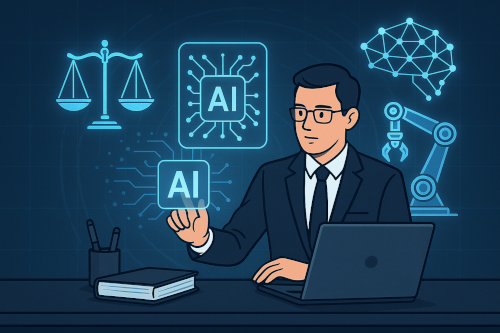The integration of artificial intelligence into the legal workforce is no longer a future possibility but a present reality. Across firms of all sizes and in every area of practice, lawyers are encountering a growing number of AI tools designed to assist with tasks that have traditionally been carried out by humans. The legal profession, once considered immune to automation due to its reliance on judgment, nuance and interpersonal skill, is now being reshaped in fundamental ways.
At the heart of this transformation is the shift in how legal information is processed and analysed. AI tools are capable of scanning thousands of pages of documents in a fraction of the time it would take a human lawyer. This has revolutionised discovery processes in litigation, allowing firms to handle document-heavy matters with greater speed and at lower cost. Contract review and due diligence exercises have also benefited from AI-powered software that can identify anomalies, flag risks and suggest standardised clauses based on precedent.
The impact on junior lawyers and graduates is already being felt. Tasks that once served as a training ground for early career practitioners are increasingly being delegated to machines. While this may improve efficiency, it raises concerns about how the next generation of lawyers will acquire the foundational skills that come from carefully reading documents, wrestling with ambiguity and learning from the iterative process of revision and review. Some firms are responding by rethinking their training models, emphasising higher order skills such as strategy, negotiation and client management.
There is also a cultural shift underway. Lawyers are being asked to develop a degree of technological literacy that was once unnecessary. Understanding how algorithms work, assessing the quality of data inputs and questioning the assumptions that underpin machine learning systems are becoming core competencies for practitioners involved in AI-assisted practice. This is particularly important given the ethical obligations lawyers hold in relation to accuracy, independence and confidentiality. Blind reliance on AI tools without a proper understanding of their limitations could expose practitioners to professional risk.
Another dimension to this change is the way AI is altering client expectations. With the promise of faster turnarounds and lower costs, clients are beginning to question why legal services should remain so expensive. This has placed pressure on firms to embrace AI not just as a tool for internal efficiency but as a competitive necessity. Some firms are experimenting with subscription-based legal products or on-demand advisory services powered by AI engines. Others are entering into partnerships with technology companies to develop bespoke legal tech solutions.
Despite the obvious challenges, there is also opportunity. AI has the potential to free lawyers from repetitive administrative work and allow them to focus on more complex, creative and strategic matters. Used wisely, it can enhance access to justice by reducing the cost of legal services and expanding the reach of legal advice. The question is not whether lawyers will adapt but how. The challenge for the profession is to integrate AI in a way that strengthens rather than diminishes the quality of legal practice and to do so without surrendering the core values that define the lawyer’s role in society.

Leave a Reply